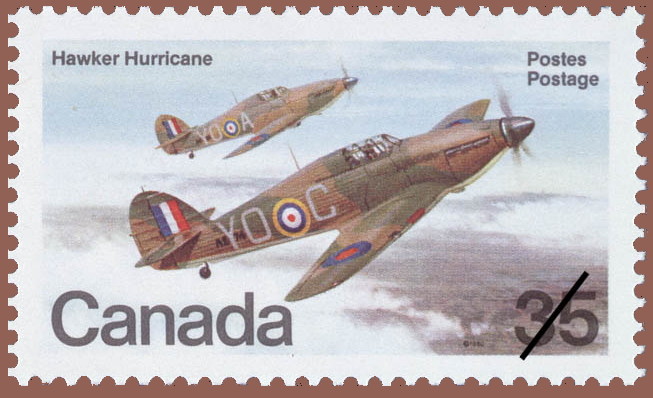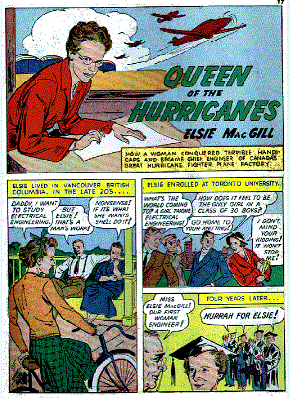A Hurricane Force
On March 27, 1905, aeronautical engineer Elizabeth Muriel Gregory “Elsie” MacGill was born in Vancouver, British Columbia. Attracted first to the red-hot field of radio, she became the first woman electrical engineering graduate from the University of Toronto.
Working her first job at the Austin Automobile Company, Michigan, MacGill saw the shift in engineering opportunities to aircraft manufacturing. She moved to Ann Arbor and the University of Michigan to take a graduate degree in Aeronautical Engineering. She dreamed of becoming a pilot. Just before her final exams, MacGill was struck with a sudden and devastating illness. Overnight, she lost the use of her legs. MacGill wrote her final examinations in a hospital bed. She became North America’s first woman to earn a graduate degree in Aeronautical Engineering.
Her illness, eventually diagnosed as a form of myelitis, forced her to return to her Vancouver home where she took the next few years to recover what physical mobility she could. MacGill stayed current and involved herself writing articles on aviation. When she was able to move around with the aid of canes on her own, she continued studies at MIT, in America’s oldest and most respected university aerospace department. She still dreamed of flying a plane.
With the latest credentials from the best schools in the business, MacGill signed on with Longueuil Québec’s Fairchild Aircraft as an assistant engineer working on stress analyses and bush aircraft design. What she learned there about aircraft testing, demos, and evaluations she took with her to a new position as Chief Aeronautical Engineer at Canada Car and Foundry in present day Thunder Bay. Here she put what she knew into her own design and the Maple Leaf Trainer II rolled out onto the runway. Now, the world’s first woman aircraft designer, MacGill flew behind her test pilot.

During WWII, she oversaw the design and production of a commission from Britain’s Royal Air Force, the Hawker Hurricane fighter aircraft. 1400 Hurricanes took wing. Becoming known as “Queen of the Hurricanes”, MacGill’s indomitable will fuelled her great flights of achievement.

MacGill moved to Toronto to pursue her own successful consulting and contract interests in aviation. She was soon the first woman and Canadian Technical Advisor to the International Civil Aviation Organization, a special agency of the United Nations, working up guidelines and regulations about commercial aircraft design, production, and air worthiness. MacGill’s flying dream had expanded to helping pave the way for all flight throughout the world. Prime Minister Lester Pearson appointed MacGill to serve on the Royal Commission on the Status of Women in Canada, 1967 – 1970.
Honours she received include: the Order of Canada; the Gzowski Medal from the Engineering Institute of Canada for her paper on factors affecting mass production of airplanes; and the Gold Medal of the Association of Professional Engineers of Ontario/the Ontario Society of Professional Engineers.
B Bondar / Real World Content Advantage